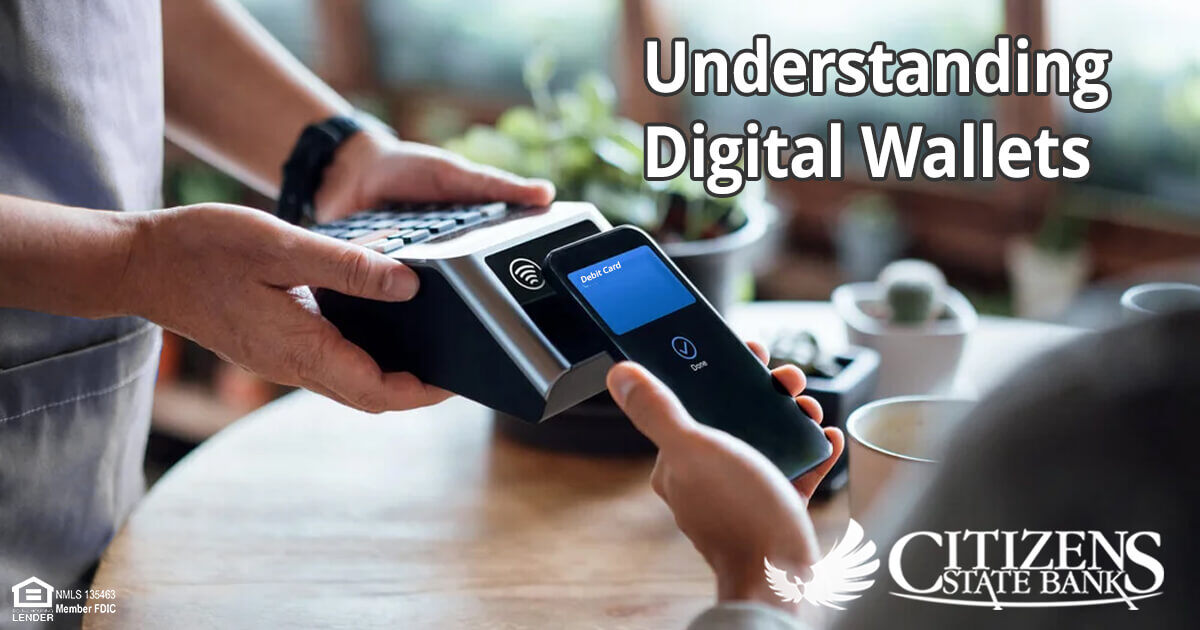
In today's world, convenience is king. We order food with a tap, book a ride with a swipe, and manage our finances with the click of a button. If you're comfortable with online and mobile banking, then you're already halfway to understanding digital wallets. But what exactly are digital wallets, and why are they becoming so popular? Let's break it down in simple terms.
Picture your physical wallet, the one stuffed with cash, cards, receipts, and maybe an old photo or two. Now, imagine that wallet transformed into a digital version on your favorite digital device. That’s a digital wallet!
A digital wallet (or mobile wallet) is a software application that stores your payment information, such as credit and debit card details, securely on your device. This allows you to make payments quickly and easily, whether you're shopping online, paying bills, or buying a coffee at your favorite café.
Setup: To get started, check to see if a digital wallet app is installed on your smartphone. If not, you can download one from your app store. Frequently used apps include Apple Pay, Google Wallet, and PayPal. Once installed, you’ll be prompted to add your payment information, which could be your bank account details, debit or credit cards, or even store loyalty cards.
Security: Digital wallets use encryption and other security measures to protect your information. Think of it as a digital fortress guarding your payment details. Features like fingerprint or facial recognition add an extra layer of security, ensuring only you can access your wallet. It really is the safest way to make a purchase.
Making Payments: When you're ready to pay for something, simply open your digital wallet app, select the card you want to use, and authenticate the transaction. If you're in a store, you can often just tap your phone on a contactless payment terminal. For online purchases, choosing the digital wallet option at checkout makes the process seamless and quick.
Convenience: With a digital wallet, you don’t have to carry around a bulky physical wallet. Everything you need is on your phone. Forgot your wallet at home? No problem!
Speed: Paying with a digital wallet is often faster than using cash or card. A quick tap or scan, and you’re done.
Security: Digital wallets use advanced security features to protect your information. They are often more secure than carrying physical cards or cash, which can be lost or stolen.
Organization: Digital wallets can help you keep track of your spending, with detailed transaction histories and the ability to manage multiple cards in one place.
Ready to give it a try? Here’s how you can start:
Choose an App: Decide which digital wallet app suits your needs. Apple Pay is great for iPhone users, Google Wallet for Android, and PayPal is a versatile option for many platforms.
Add Your Cards: Follow the app’s instructions to add your payment information. This usually involves entering your card details or taking a picture of your card.
Explore Features: Spend some time exploring the app’s features. You’ll likely find options to link loyalty cards, gift cards, and even get special offers.
Use It: Next time you’re out shopping or paying a bill online, use your digital wallet. Notice how quick and easy it is!
Digital wallets are the future of payments, combining convenience, speed, and security. They make managing your money easier and more efficient, fitting perfectly into our increasingly digital lives. Give it a try and experience the future of payments today!
The views, information, or opinions expressed in this article are solely those of the author and do not necessarily represent the views of Citizens State Bank and its affiliates, and Citizens State Bank is not responsible for and does not verify the accuracy of any information contained in this article or items hyperlinked within. This is for informational purposes and is no way intended to provide legal advice.